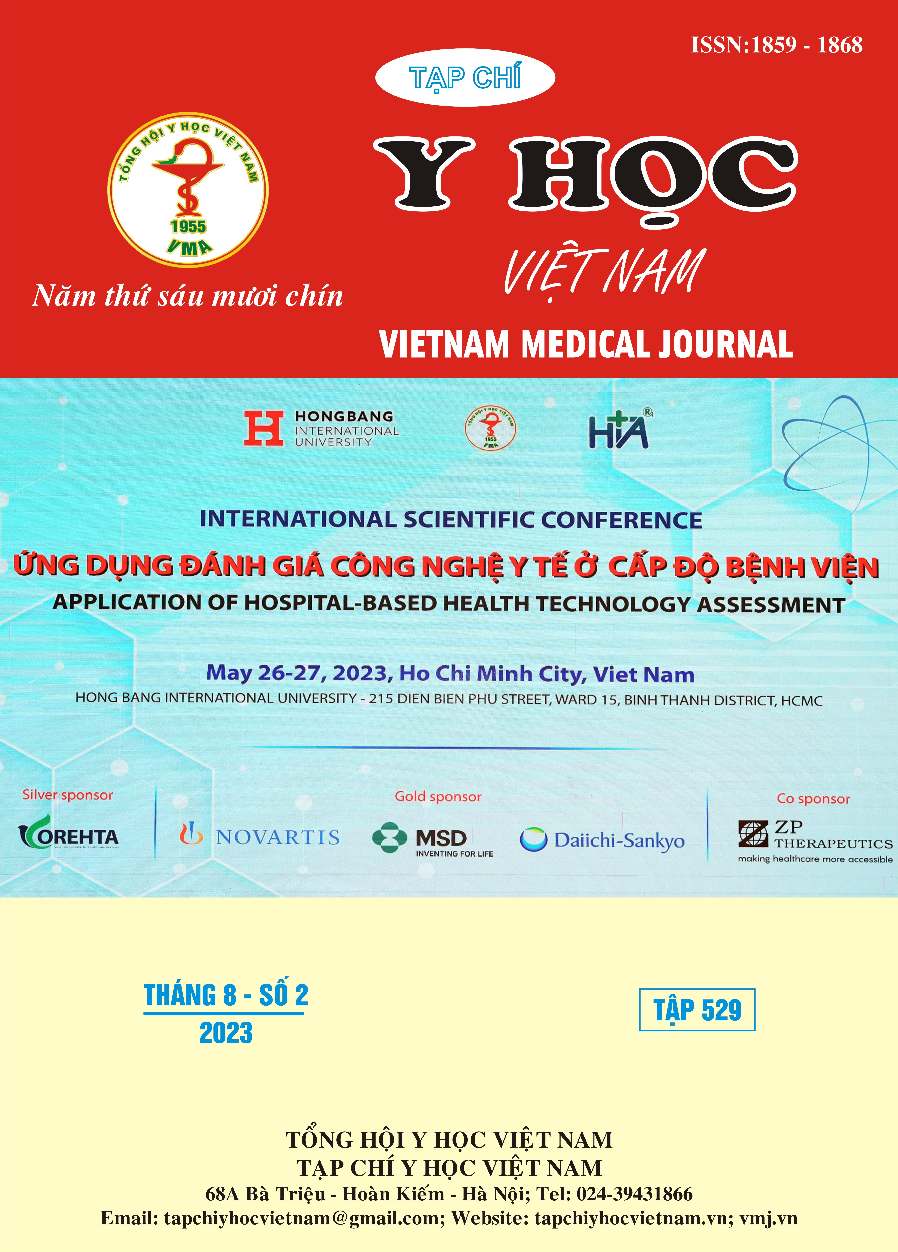CLINICAL SYMPTOMS, GASTROSCOPY IMAGES AND HISTOPATHOLOGY OF HEREDITARY DIFFUSE GASTRIC CANCER
Main Article Content
Abstract
Hereditary diffuse gastric cancer (HDGC) is a rare genetic disease, characterized by pathological tissue, which are less differentiated and inVasiVe cancer cells in the lower mucosa, so it is difficult to detect early disease. Objectives: This study aimed at analyzing the endoscopic and clinicopathological characteristics of HDGC. Methods: The cross -sectional research is conducted in patients diagnosed with HDGC. Patients are gathered information about family history, clinical symptoms, gastroscopy images and histopathology.Results: According to the diagnostic criteria of the International Gastric Cancer Linkage Consortium (IGCLC) 2015, there are 8/45 (17,8%) to satisfy criteria 1 with an aVerage age of detection of 39,6 years old, 37/45 ( 82,2%) satisfies criteria 2 with an aVerage age of 33,9 years old. The most common age group in both sexes is ≤ 40 years old. Male/female ratio ≈ 1/1. Clinical symptoms often suffer from epigastric pain (80%), lean weight (37,8%), nausea/Vomiting (37,8%), gastrointestinal bleeding (28,9). Characteristics of endoscopy lesions are most common in the caVe - pylorus (55,6%) with the most common nature of ulcers (57,8%), infiltration (11,1%). The stage of histopathology stage II accounts for the highest (35,5%). Conclusions: Hereditary diffuse gastric cancer (HDGC) has the same ratio of male and female, there is no difference in gender, common at young age ≤ 40 years old. The aVerage age in female is lower than that of male.
Article Details
Keywords
Hereditary diffuse gastric cancer, clinical symptoms, gastroscopy, histopathology
References
2. Oliveira C, Suriano G, Ferreira P, Canedo P, Kaurah P, Mateus R, et al. Genetic screening for familial gastric cancer. Hered Cancer Clin
Pract. 2004;2(2):51-64.
3. Guilford P, Hopkins J, Harraway J, McLeod M, McLeod N, Harawira P, et al. E-cadherin germline mutations in familial gastric cancer. Nature. 1998;392(6674):402-5.
4. Hansford S, Kaurah P, Li-Chang H, Woo M, Senz J, Pinheiro H, et al. Hereditary Diffuse Gastric Cancer Syndrome: CDH1 Mutations and Beyond. JAMA Oncol. 2015;1(1):23-32.
5. Mi EZ, Mi EZ, di Pietro M, O'Donovan M, Hardwick RH, Richardson S, et al. ComparatiVe study of endoscopic surVeillance in hereditary diffuse gastric cancer according to CDH1 mutation status. Gastrointest Endosc. 2018;87(2):408-18.
6. Kim S, Chung JW, Jeong TD, Park YS, Lee JH, Ahn JY, et al. Searching for E-cadherin gene mutations in early onset diffuse gastric cancer and hereditary diffuse gastric cancer in Korean patients. Fam Cancer. 2013;12(3):503-7.
7. Bang YJ, Van Cutsem E, Feyereislova A, Chung HC, Shen L, Sawaki A, et al. Trastuzumab in combination with chemotherapy Versus chemotherapy alone for treatment of HER2-positiVe adVanced gastric or gastro- oesophageal junction cancer (ToGA): a phase 3, open-label, randomised controlled trial. Lancet. 2010;376(9742):687-97.
8. Chu CM, Chen CJ, Chan DC, Wu HS, Liu YC, Shen CY, et al. CDH1 polymorphisms and haplotypes in sporadic diffuse and intestinal gastric cancer: a case-control study based on direct sequencing analysis. World J Surg Oncol. 2014;12:80.


